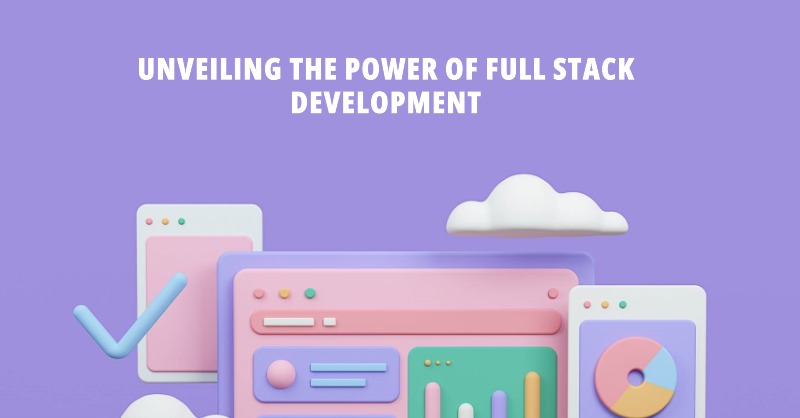Introducing Full Stack Development and Unveiling Its Power

In the ever-evolving landscape of technology, the demand for versatile and skilled software developers continues to soar. One term that has gained considerable attention and importance in recent years is “Full Stack Development.” This approach to software development has quickly become a powerhouse in the tech industry, empowering developers to create end-to-end solutions while wielding a broad spectrum of skills. In this article, we will delve into the world of Full Stack Development, explore its components, and unveil the immense power it offers.
What is Full Stack Development?
Full Stack Development, often abbreviated as “FSD,” refers to the practice of building software applications that encompass both the frontend and backend components. A Full Stack Developer is a versatile professional who possesses a comprehensive understanding of various technologies and can work on all layers of an application, from the user interface to the server and database.
The term “stack” in Full Stack Development usually consists of three key components:
1. Frontend Development
Frontend development involves creating the user interface and the user experience of a web application. Full Stack Developers proficient in frontend technologies use HTML, CSS, and JavaScript to build responsive and interactive web pages. They are responsible for designing and developing the look and feel of the application, ensuring it is user-friendly and visually appealing.
2. Backend Development
Backend development focuses on the server-side of an application. It involves handling server logic, databases, and server-to-client communication. Full Stack Developers well-versed in backend technologies work with languages like Python, Ruby, Java, or Node.js. They design the application’s architecture, manage data storage, and ensure the server’s efficient operation.
3. Database Management
Database management is a crucial aspect of Full Stack Development. Full Stack Developers must be skilled in working with databases, which store and retrieve data efficiently. Common database systems include MySQL, PostgreSQL, MongoDB, and many more. Developers must design and manage databases to ensure data integrity and optimal performance.
The Power of Full Stack Development
Now that we have a clear understanding of Full Stack Development’s components, let’s explore the power it brings to the world of software development:
1. Versatility
Full Stack Developers are like Swiss Army knives in the software development world. They can handle all aspects of an application, from the user interface to the server-side logic, making them highly adaptable to various projects. This versatility is invaluable in rapidly changing tech environments.
2. Efficient Collaboration
Full Stack Developers can bridge the gap between frontend and backend teams, facilitating smoother communication and collaboration in development projects. They understand the entire application stack, which leads to faster issue resolution and improved teamwork.
3. Cost-Effective Solutions
Hiring Full Stack Developers can be a cost-effective solution for startups and small businesses. One skilled professional can handle multiple roles, reducing the need to hire separate specialists for frontend and backend development, ultimately saving on labor costs.
4. Rapid Prototyping
Full Stack Developers excel in rapid prototyping. They can quickly build and test MVPs (Minimum Viable Products) to validate ideas and concepts. This agility is crucial for startups and organizations seeking to bring new products to market swiftly.
5. Problem Solving
Full Stack Developers are adept problem solvers. Their deep understanding of the entire application stack allows them to diagnose and resolve issues efficiently. This results in improved application stability and a better user experience.
6. Career Advancement
Embracing Full Stack Development can open up numerous career opportunities. Full Stack Developers are in high demand, and their versatility is highly prized by employers. This can lead to more challenging and rewarding roles in the tech industry.







